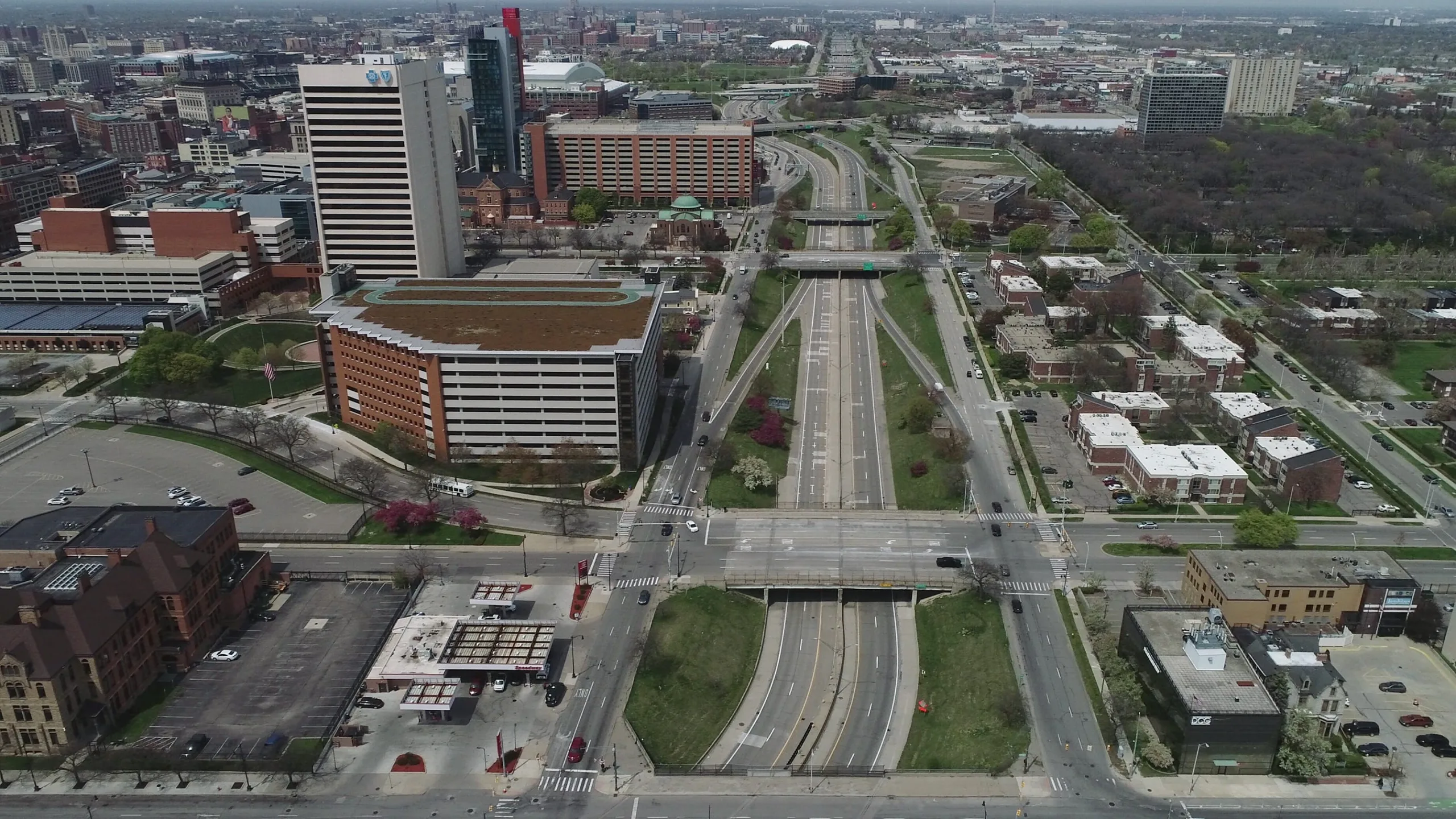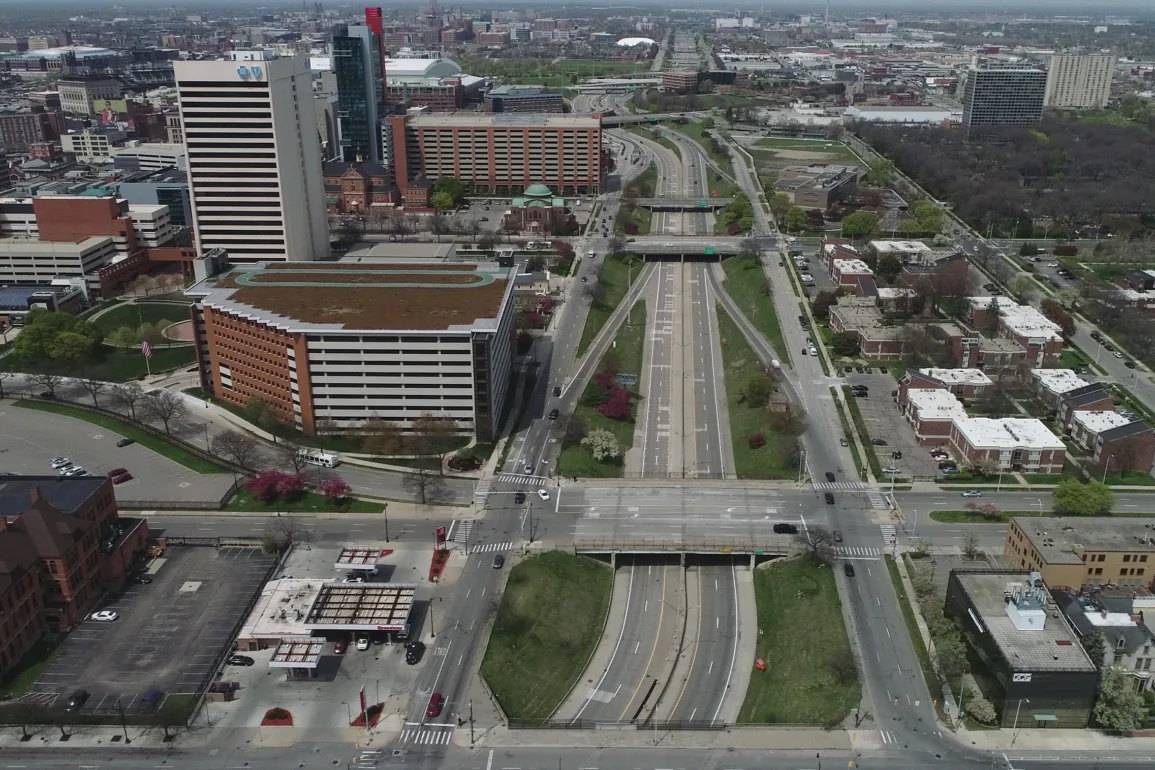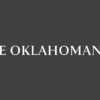
About 60 years ago, the construction of the I-375 freeway decimated the thriving Black neighborhoods of Black Bottom and Paradise Valley, displacing families and uprooting businesses.
Decades later, state and federal transportation departments are pumping millions of dollars into replacing the freeway with a street-level boulevard in an effort to connect the surrounding areas and spur economic development.
But as the area sees new investment and development, it’s important to address the economic inequities inflicted upon Black Detroiters and take steps to generate wealth for those who lost it, according to a new report released on Thursday from the think-thank Detroit Future City.
The report calls for “reparative investments” in historic Black Bottom and Paradise Valley — acknowledging the negative impact of so-called urban renewal in the 20th century and designing programs to support current and former residents affected by those policies.
“If you’re thinking about what does growing Detroit look like, it should look like a place where people have an opportunity to have a business that they can pass down generation over generation and in the Black Bottom and Paradise Valley community, that’s what was there. People had businesses that they had intended to pass down to their children, grandchildren, great grandchildren and we lost that,” said Anika Goss, CEO of Detroit Future City.
Opinion:This is Detroit’s moment to get I-375 replacement right. Let’s not lose it. | Opinion
The details are still in the works, but by 2024, Detroit Future City intends to create an investment fund for the area, including private equity capital, venture capital and philanthropic and corporate investments, Goss said.
“We don’t expect for this to be a $10 million philanthropic raise alone. This has to be a public and private investment into an area to create economic opportunity and wealth for Detroiters,” she said.
The inspiration for Detroit Future City’s approach to investment in these two neighborhoods came after the organization’s staff and board members visited the Rondo neighborhood in St. Paul, Minnesota, where Goss said community development leaders prioritized descendants of Black residents and businesses displaced by the construction of the I-94 freeway. It included investments for new housing, commercial development and land access that provided opportunities for Black St. Paul residents to live and do business.
Detroit has a chance to take a similar approach as the city’s own interstate freeway sees an overhaul.
The Michigan Department of Transportation (MDOT) and City of Detroit plan to convert the I-75 freeway into a boulevard. Construction is expected to take place from 2026 to 2028 and the project is estimated to cost about $425 million, Rob Morosi, an MDOT spokesperson, said in an email. Last fall, the project received a nearly $105 million grant from the federal government.
Earlier this year, MDOT hosted an open house where people were able to vote on the design of bridges, planters, historic markers and public art. Attendees said turning the freeway into a boulevard wouldn’t recreate what was lost when Black Bottom, Paradise Valley and Hastings Street were removed or replaced, but hoped community members could see some benefits. They worried, however, that the project would disproportionately benefit wealthy landowners in the city.
“Through numerous engagement efforts over the years with the local community, businesses, social and philanthropical groups, and the public, we set out to not only create a piece of infrastructure that works for all modes of transportation but also honor the historic Black Bottom and Paradise Valley neighborhoods through innovative means,” Morosi said.
MDOT plans do more community engagement later this year, he said.
Critics say MDOT’s plan to turn I-375 into a boulevard will do little to reconnect neighborhoods, essentially bringing interstate traffic onto surface streets and making the area less safe for pedestrian traffic.
More:I-375 project in Detroit could mean big changes — but some wonder who will benefit
Detroit Future City envisions focusing on residents and their descendants who were displaced by urban renewal, along with Black Detroiters currently living in historic Black Bottom and Paradise Valley; increasing homeownership among Black Detroiters in the areas; strengthening the housing stock by boosting home repair; ensuring Black developers have access to development opportunities; supporting the development of a business district with Black-owned enterprises and Black entrepreneurs and making neighborhoods climate resilient.
“For Detroiters, this is really personal,” Goss said. “If you are a Black Detroiter and a generational Detroiter, then you have a story about Black Bottom.”
Free Press staff writer Eric D. Lawrence contributed to this report.
Contact Nushrat: nrahman@freepress.com; 313-348-7558. Follow her on Twitter: @NushratR.



